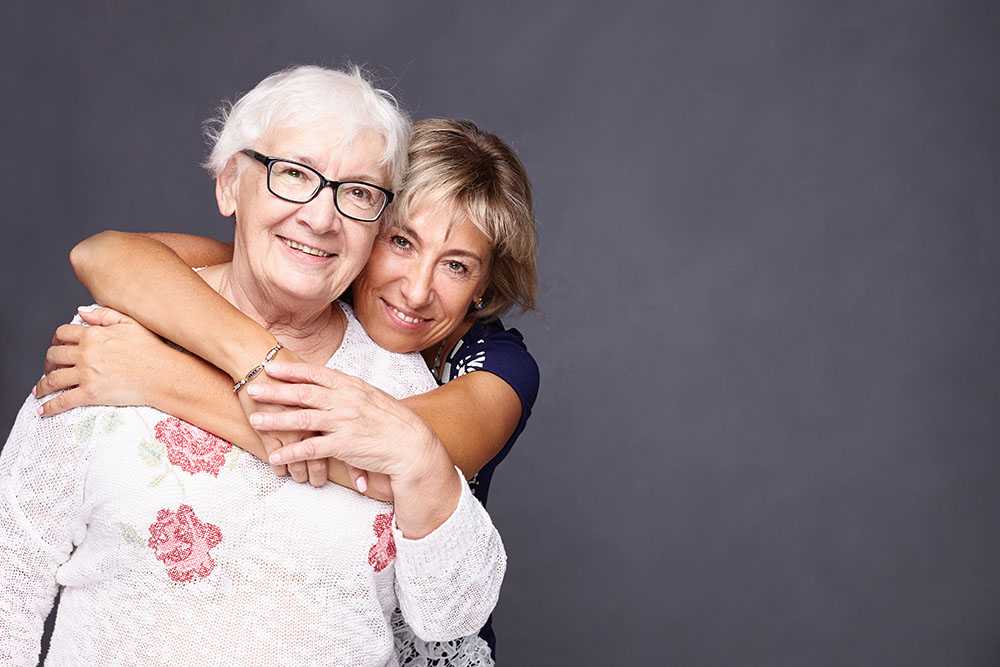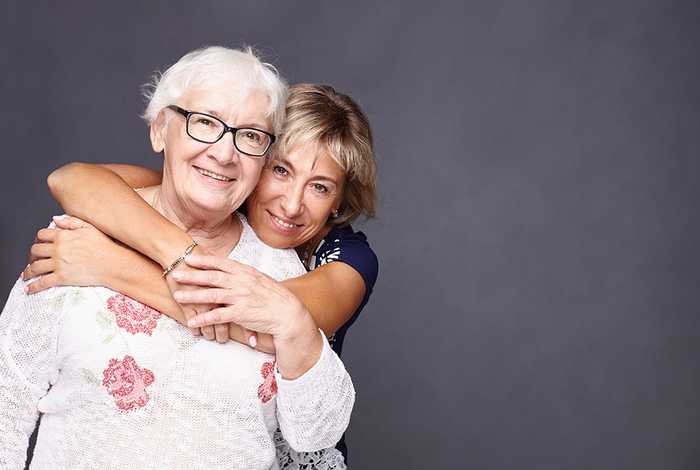Posted by Janine Griffiths
Guide to empowering and promoting independence in older age

When a loved one reaches later life, independence becomes more than just a practicality. It’s also about ensuring they have dignity, confidence, and perhaps most importantly, a sense of self.
For many families, one of the biggest concerns is how to balance providing support with allowing older relatives to continue making their own choices and living life on their own terms.
Empowering and promoting independence in older age is not about asking someone to manage everything alone. It’s about giving the right support, and encouragement to stay active, engaged, and confident in daily life. This balance not only protects wellbeing but also nurtures resilience and a strong sense of purpose.
In this guide, we’ll share practical ways you and your family can help maintain independence safely and meaningfully so your loved one can thrive with choice and dignity at every stage.
Defining independence in health and social care
Independence in health and social care refers to the ability of older people to make choices while managing aspects of daily living and maintaining a sense of control over how they are supported.
Within health and social care, independence means respecting dignity and recognising the importance of personal preferences. Care should aim to encourage participation and provide the right balance between support and autonomy.
Empowering and promoting independence in older age is about ensuring that care enhances quality of life rather than limiting it. It involves creating environments where older adults feel respected, capable, and engaged while receiving the assistance they need to remain safe and comfortable.
Independence is at the heart of the Care Act 2014. For families looking at care options, this is important because it encourages care providers to put individual needs and preferences first. When care is person-centred, it can make daily life more fulfilling and lead to better long-term wellbeing.
Click here to read more about what independence in older age is.
Why independence matters in older age
Empowering and promoting independence in older age reinforces identity and gives a sense of purpose. Making decisions and managing daily routines helps older adults feel more capable and in control.
For example, when it comes to health, independence could refer to the ability to stay active, maintain mobility, and engage in stimulating activities to keep both physical and cognitive skills strong. Independence also encourages problem-solving and mental alertness, all of which contribute to overall health.
Research shows that greater functional independence is closely linked to higher quality of life in older adults. A study of nursing home residents published in the International Journal of Caring Sciences found that those with higher functional autonomy and independence reported better overall wellbeing, underlining the connection between physical ability and life satisfaction.
Independence also reduces loneliness and builds resilience. Being able to participate, contribute, and connect on one’s own terms strengthens self-esteem and emotional wellbeing. Supporting independence means supporting a life that is active, engaged and fulfilling.
Everyday choices and control
Decisions such as what to eat, how to spend time, or when to rest may seem small, but they carry a deeper meaning for those who are receiving care.
When your loved one is given the space to shape their own day, it strengthens self-esteem and reassures them that their preferences matter.
By combining clear communication with thoughtful planning, you can create an environment that allows your loved one to make confident choices without feeling restricted. This balance helps protect wellbeing while still nurturing dignity and independence.
How to remain independent in older age
For families and careseekers, empowering and promoting independence in older age means looking at practical steps that protect safety while encouraging freedom. From small adjustments in the home to forming a solid support network, there are many ways to strengthen confidence and maintain control.
Consider making changes and adaptations to the home
The right environment can make a meaningful difference to independence in later life. Small adjustments in the home, such as better lighting, accessible layouts, or supportive fittings, can reduce barriers and create a safer, more comfortable space. These changes are not just practical, they help older adults feel more confident in managing daily life.
Technology is another powerful tool in empowering and promoting independence in older age. Simple aids, from reminder systems to mobility support, can provide reassurance while helping individuals stay active and engaged. When used thoughtfully, these tools can add freedom without taking away choice.
It is important, however, to find a balance. Adaptations should feel enabling rather than overwhelming. By introducing changes gradually and with sensitivity, families can support independence in a way that feels respectful and truly person-centred.
Encourage physical activity and exercise
Gentle movement, whether through exercise or simple daily activity, helps maintain strength, balance, and mobility. This physical foundation allows older adults to continue managing daily routines with confidence.
Equally important is keeping the mind stimulated. Activities that encourage learning, problem-solving, or creativity provide a sense of achievement and help maintain clarity of thought. When the mind remains active, it supports decision-making and builds resilience.
Social connections also play a vital role in empowering and promoting independence in older age. Opportunities to join groups, contribute to a community, or stay connected digitally all nurture a sense of belonging.
When the body, mind, and social life are supported together, independence has the chance to flourish. This balance brings dignity, purpose, and joy to later years.
Encouraging self-confidence
For your loved one, self-confidence is a cornerstone of staying independent in later life, and you play a vital role in supporting it. By recognising and celebrating their achievements, you show them that their choices and efforts truly matter. This kind of encouragement helps them feel capable and respected.
It is natural for many older people to worry about being a burden. You can ease this fear by creating an environment where their decisions are welcomed and supported. When you frame independence as self-empowerment rather than isolation, you help your loved one feel stronger and more assured.
The way you speak to and about your loved one also makes a big difference. Choosing words that affirm their ability and potential can build confidence, while negative or dismissive language may unintentionally erode it. Empowering and promoting independence in older age begins with the compassion and respect you show every day.
Support networks: independence with a safety net
The support you give to your loved one, along with help from carers and professionals, can provide reassurance while still allowing them to hold on to their autonomy.
Knowing that there is a network of people around to step in and provide assistance when necessary can be a huge weight off your mind.
However, the key is to balance support with empowerment. By offering help in ways that enable decision-making and daily activity rather than taking over, you allow your loved one to remain confident and capable.
With this support in place, your loved one can make meaningful choices and live with dignity while knowing you are there when needed.
Looking for a care provider?
Finding the right care provider can feel stressful, but it doesn’t have to be. At Autumna, we’re here to make it easier and guide you at every step.
Start by visiting our online directory and entering your location. You can select the type of care you need and see options that suit your requirements. Regardless of whether you’re looking for home care, living care or day care, we can help you find exactly what you need.
For an even more personalised experience, try our shortlisting tool. Answer a few quick questions, and we’ll create a list of care providers that match your needs more closely.
If you’d rather speak to someone, our friendly team is always available seven days a week on 01892 335 330.
Receive a Free Care Provider Shortlist!
Let our expert team of advisers get your search off to a great start.
Tell us a little about your needs and we'll send you a bespoke shortlist of care providers! Click the button below to begin, it takes just a few minutes.
Other articles to read
From the blog

Older Persons Care Advice
How to talk to your parents about care options
October 2nd, 2025
Learn how to talk to your parents about care options with compassion. Explore choices together and plan for the future with dignity and respect.

Older Persons Care Advice
Guide to empowering and promoting independence in older age
September 30th, 2025
Read our practical guidance for families on empowering and promoting independence in older age, helping loved ones stay confident and in control.

Older Persons Care Advice
Ultimate guide to jointly owned property and care home fees
September 26th, 2025
Understand jointly owned property and care home fees, how assessments work, and steps to protect your finances and plan ahead with confidence.
Frequently Asked Questions
Independence means your loved one can make choices, manage daily routines, and maintain control over their life, with the right support in place.
Simple steps like home adaptations, encouraging gentle exercise, supporting hobbies, and using technology can help older adults stay active and confident while ensuring safety.
No. True independence is about being able to make decisions and stay engaged while receiving appropriate support from family, carers, or professionals.
Empowering and promoting independence in older age helps maintain confidence, purpose, social connections, and mental alertness, all of which boost overall wellbeing.
Friends, family, carers, and professionals provide reassurance and guidance while allowing autonomy. A strong support network acts as a safety net, helping older adults make meaningful choices confidently.






